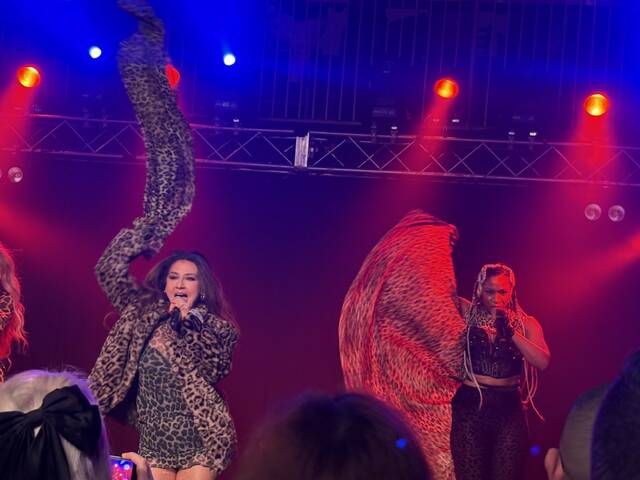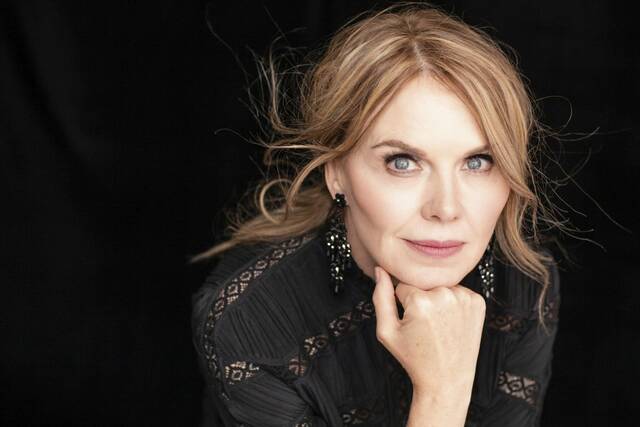If ever an artist firmly stood at the intersection of rhythm and blues it’s Robert Cray. While the Georgia native has earned numerous accolades (and quite a number of Grammys) for his acumen as a blues artist, Cray’s vocal and playing style is far more reflective of his deep and abiding love of soul music.
Cray brings that love and that music to The Palace Theatre in Greensburg March 13.
So it goes with his forthcoming album, “That’s What I Heard.” While this collection features its share of original numbers penned by Cray, there are a number of more obscure R&B covers the 66-year-old was inspired to record by longtime friend Steve Jordan, who reunited with Cray to play drums and produce this set.
“We once again had the opportunity to work with Steve Jordan, which is always a good thing. So we started talking about songs and he told me about (“Groove & Grind: Rare Soul”) this CD I should order, which is what I did. It’s a compilation of old R&B tunes, from which we got two songs for this record. We got ‘My Baby Likes to Boogaloo’ and another one called ‘Do It,’” Cray recalls in an early January phone interview. “Upon hearing the first track on that compilation, which is ‘My Baby Likes to Boogaloo,’ I called Steve up and told him I had to do that song. He says he knew it and that he was going to play drums on it.”
For this album, Cray and Jordan did a deep dive, with the aforementioned “Boogaloo” and the 1971 Bill Sha-Rae representing hard-edged funk with an added bonus being the six-string contributions of guest guitarist Ray Parker Jr. (who played in Sha-Rae’s band as a teenager) lending some grit to the proceedings. Elsewhere, including “Burying Ground” was a nod to Sundays from Cray’s youth, when his parents reserved the stereo for spinning numerous gospel records.
As someone who inherited the blues elder statesman mantle from idols like Muddy Waters, John Lee Hooker and Albert Collins, all of whom Cray had played with years ago, he sees this blending of sounds as part of the evolution of the blues that he’s seen occurring in the past few decades.
“There’s all kinds of stuff going on. There are a whole lot of younger cats playing guitar and coming out. There are people playing acoustic-style blues and there are a whole lot of female singers now, which is great,” Cray says. “I spoke with someone earlier today and we mentioned the fact that the music is changing, because it’s supposed to. It’s incorporating a lot of other genres mixed into it, which it’s supposed to, because nobody is an Albert Collins, John Lee Hooker, Albert King or anybody like that. It’s a whole new world now and I’m glad people are picking up on the old and putting their own stamp on that and adding their own thing to it. It’s good.”
Cray’s own musical journey had him playing piano as a child. While playing the West Coast college circuit and collaborating with fellow blues artist Curtis Salgado in the Cray-Hawks, Cray got cast as an uncredited bass player in Otis Day and the Knights, the house band in the 1978 film “Animal House.”
Over time, he’s shared stages with Eric Clapton, Buddy Guy and Stevie Ray Vaughan, all while compiling quite a canon of his own. Over time, he’s seen quite a change in the music industry.
“You don’t get all that support you used to get from the record companies. That seems to be gone, where you had these big family-type situations. It’s a big change. You hope you can sell something online that more people might get a hold of,” Cray says.
That said, the approach to playing live music hasn’t changed and he still enjoys it immensely. So much so, that touring plans include heading over to Europe for a string of dates in April after a quick run through the East Coast.
“We go out and have fun — that’s what it’s all about. We change the set list up every night, with the exception of a few tunes that we do,” he says. “In the end, the reason that you’re on the stage is that [fans] like what you do. They don’t tell you that, but you’re on the stage because they like what you do. So what you should do is do what you do and love what you do.”
Dave Gil de Rubio is a Tribune-Review contributing writer.








